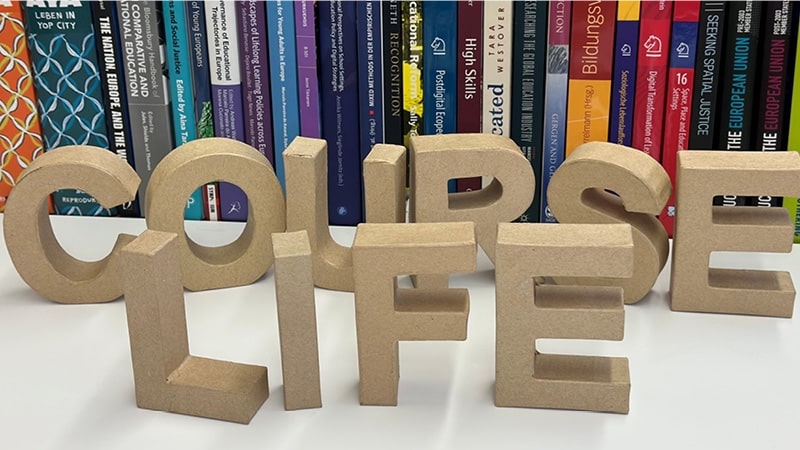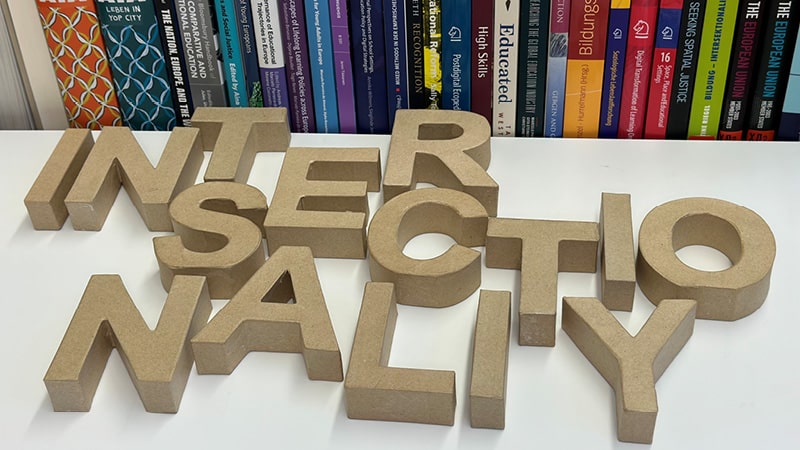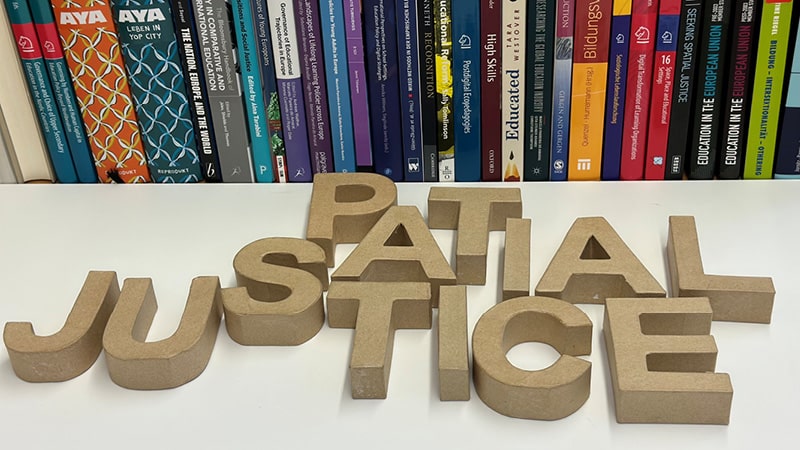CLEAR
Constructing Learning Outcomes in Europe: A multi-level analysis of (under)achievement in the life course NEWSFinal Conference
September 16 2025
The CLEAR research project has entered its final year and we are happy to announce the date and the venue for our Final Conference. The Conference will take place in Lisbon, Portugal, on September 16, 2025 in the premises of Fundação Cidade de Lisboa.
The title of the conference “From Learning to Living: Co-creacting education quality across European regions” already indicates that we will not only present project’s core results and findings, but will also seek answers to the most pressing questions addressed by the policymakers, practitioners, young people and everyone involved in the European educational landscape.
We are thrilled to announce that Gert Biesta (University of Edinburgh), Nafsika Alexiadou (Umeå University), Tanja Sturm (University of Hamburg) and Justin J. W. Powell (University of Luxembourg) have accepted our invitation and agreed to contribute to the Final Conference.
The registration for the Final Conference is now open and will also serve as a dissemination channel for our research outcomes.
The CLEAR research project (2022-2025) responds to the Horizon Europe’s Call HORIZON-CL2-2021-TRANSFORMATIONS-01-04: Addressing poor learning outcomes in basic skills and early school leaving at national, regional and local level in Europe and seeks to better understand the factors that affect the quality and the construction of learning outcomes in Europe.
The specific approach of CLEAR is centred on the process of constructing learning outcomes, which we interpret as the result of manifold intersecting factors and people: institutional arrangements, spatial and socio-economic determinants, discursive and socio-cultural influences, as well as individual experiences, dispositions, cognitive and psycho-emotional abilities.
CLEAR’s overall aim is to examine the combination of multiple factors shaping learning outcomes and thus affecting their quality. Based on a better understanding of the processes of constructing learning outcomes, CLEAR inquiries into the impact of policies to boost achievement and tackle underachievement, design participative activities at local level that spark innovative policy solutions and increase social upward mobility for young people.
The CLEAR research project is conducted in eight EU countries – Austria, Bulgaria, Finland, Germany, Greece, Italy, Portugal, Spain – which represent more than half of the EU’s population with diverse governmental and education systems, economic and labour market structures, and socio-cultural contexts. By conducting comparative research in the countries studied, CLEAR will generate new comparative knowledge on the existing educational policies targeting learning outcomes of young people aged 18–29 and attaining secondary and post-secondary education and training. Hereby, the CLEAR project gives a special attention to groups that are multi-disadvantaged and/or in vulnerable situations, as they have been massively affected by the COVID-19 pandemic’s ramifications.
Conceptually, CLEAR adopts dynamic and relational concepts – Life Course, Intersectionality, Spatial Justice – that will help explore the several mutually intersecting dimensions of the issue – individual, institutional, structural, relational, and spatial. The three theoretical frameworks bridge education, sociology, social and youth policy studies, and political sciences making it possible to explore the five analytical dimensions, and to adequately conceptualise information for research site selection. Furthermore, combining these theoretical views brings together different disciplinary approaches, which enables us to address the complex methodological issues in a dynamic and interdisciplinary manner.



Methodologically, CLEAR relies on proven and field-tested comparative research and combines well-established designs of mixed-method, multi-level analyses with novel participatory strategies, thus actively stimulating informed decision-making to support policy design and implementation. CLEAR uses a plenitude of methods and conducts quantitative and institutional analyses, web-based expert surveys, and qualitative and comparative analyses. It also applies innovative participatory strategies and runs Innovation Forums with various audiences and local/regional experts. Our methodological contribution also includes identification of sparse or missing data at various governance levels and enhancing the data quality of relevant regional and national bodies, which will help to spark innovative policy solutions.
If it were up to me… What learning outcomes should we strive for? – Innovation Forum in Plovdiv, Bulgaria
The Bulgarian Innovation Forum took place at Plovdiv University on April 15th 2025. The main objectives of the Innovation Forum (IF) included discussing the CLEAR project's main results, specifically drawing on the perspectives and personal experiences of participants...
Routes and Perspectives: Understanding the (dis-)continuums of Learning through Young People’s Narratives – Innovation Forum of the CLEAR research project in Thessaloniki, Greece
The Greek Innovation Forum took place at the Centre for the Dissemination of Research Results (KEDEA), Aristotle University of Thessaloniki on the 14th of April. The IF aimed to create a dialogic space where participants of different social backgrounds (e.g., young...
Innovation Forum, or What if? – Innovation Forum of the CLEAR research project took place in Vienna, Austria
On April 29, 2025, the University of Vienna hosted an Innovation Forum of the CLEAR project. The forum took place at a welcoming, barrier-free venue in Pramergasse, bringing together a diverse group of participants to reflect on learning outcomes, social inequalities,...



